ROS for Beginners II: Localization, Navigation and SLAM
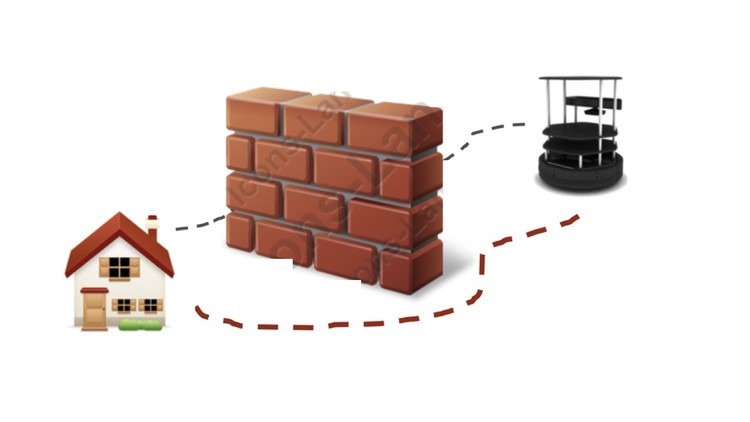
Why take this course?
🎓 Course Title: ROS for Beginners II: Localization, Navigation, and SLAM 🚀
UPDATE (Oct 9, 2020)
- Installation Instructions Added: Turtlebot3 setup with ROS Noetic 🤖
Overview
Localization, mapping, and navigation are core components of mobile robot functionality within the Robot Operating System (ROS) ecosystem. These topics, while crucial to understanding mobile robot applications, are often shrouded in complexity and can be daunting for beginners. Traditional tutorials provide a high-level overview but lack detailed explanations on how these concepts intertwine with ROS. This course bridges that gap by offering a practical approach to learning the foundations of SLAM (Simultaneous Localization and Mapping) and navigation for mobile robots using ROS.
Why Enroll in this Course?
- Comprehensive Coverage: We dive deep into the
tfpackage, which is central to the navigation stack in ROS. - Theoretical Foundation: Learn the necessary theoretical concepts that are crucial for understanding how tf operates within ROS.
- Hands-On Learning: This course combines theoretical knowledge with practical programming exercises using tf utilities and API.
Prerequisites: You should have a basic understanding of the main concepts of Robot Operating System (ROS), including ROS nodes, topics, services, and the fundamentals of motion planning in ROS. If you're not quite there yet, consider starting with my course ROS for Beginners: Basics, Motion, and OpenCV.
Instructor Background
- Years of Experience: With a rich background in programming with ROS across academic and industrial projects.
- Passionate Educator: Teaching ROS at the university level and conducting training programs.
- Industry Leadership: As the R&D Director at Gaitech Robotics, I have developed numerous ROS packages for robots and drones.
- International Contributor: Leading scientific activities around ROS and editing five volumes of books on the subject with Springer.
What You Will Learn:
- Understanding SLAM: The process of building a map while simultaneously localizing within an environment.
- Mastering Navigation: Learn how to navigate autonomously in environments using the ROS navigation stack.
- Practical SLAM Implementation: Apply the concepts you've learned to real-world scenarios with exercises and practical examples.
- Robust Foundations: Establish a solid understanding of the theoretical underpinnings that support SLAM and navigation in ROS.
📚 Join us on this journey to master the intricacies of ROS for mobile robotics! With this course, you'll be well-equipped with both the knowledge and practical skills needed to tackle complex problems in localization, mapping, and navigation using ROS. Whether you're a beginner looking to build your foundation or an experienced user aiming to deepen your understanding, this course is tailored to guide you through each step of the process. 🚀
Enroll now and embark on your journey to become an expert in ROS for mobile robot navigation! 🤖✨
Course Gallery
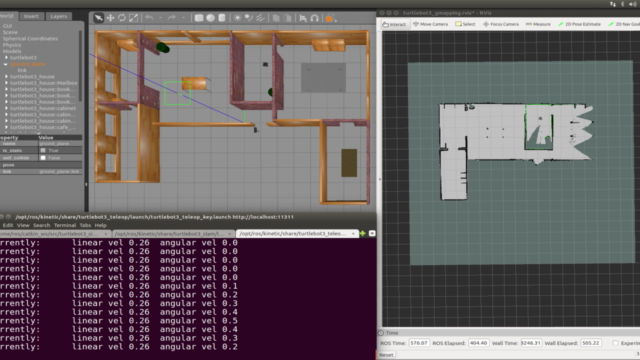
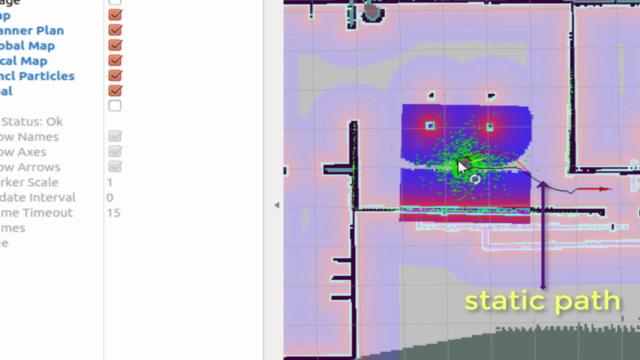
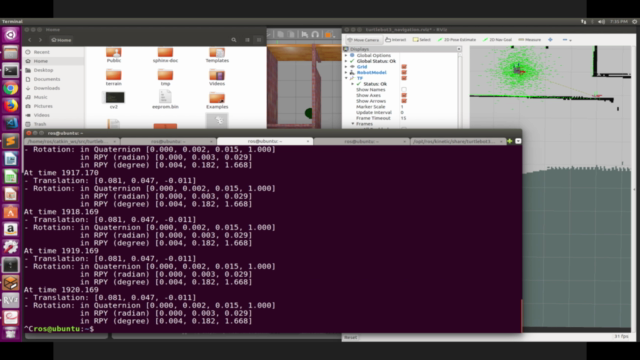
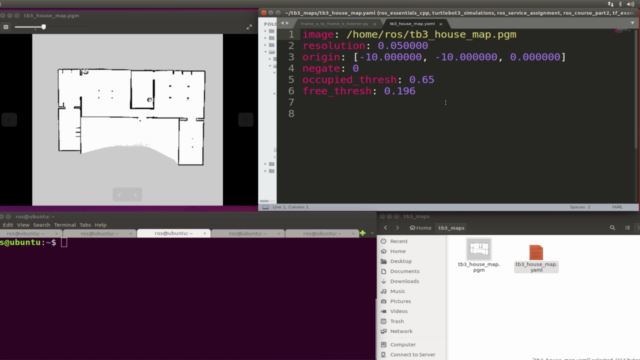
Loading charts...
Comidoc Review
Our Verdict
For those keen on understanding robust theoretical concepts in robot localization, navigation, and SLAM with ROS, this course provides extensive explanations. However, brace yourself for numerous theory-heavy lessons and a limited number of real-world scenarios. Despite occasional issues with audio quality, outdated setup recommendations, and sparse practical examples, the instructor's knowledgeable expertise in robotics merits attention. Enroll with realistic expectations regarding the potential challenges to maximize your learning experience.
What We Liked
- Comprehensive coverage of theoretical foundations for localization, navigation, and SLAM with ROS
- Instructor has deep knowledge in the field and offers detailed explanations on various topics
- Well-structured course with a focus on understanding both algorithms and code implementation in simulation
- Practical knowledge gained from learning to use ROS's default turtlebot and SLAM package
- Excellent introduction for developers interested in applications using ROS, robotics mapping, and machine vision
Potential Drawbacks
- Majority of the course is theory-based with limited practical application examples, especially in real-world scenarios
- Lack of generalized setup advice for different environments may cause difficulties in following the course
- Audio volume changes in various lectures and poor audio quality in some sections, leading to a less enjoyable learning experience
- Occasional spelling errors, use of outdated Python2 and stale links present challenges for learners
- Instructor's unresponsiveness to queries may frustrate students encountering issues during the course